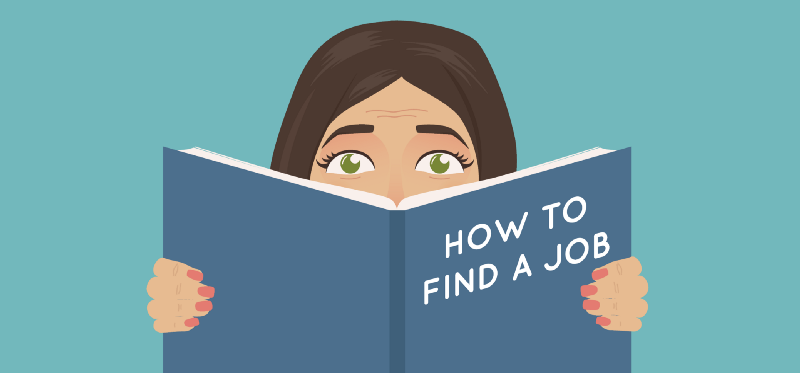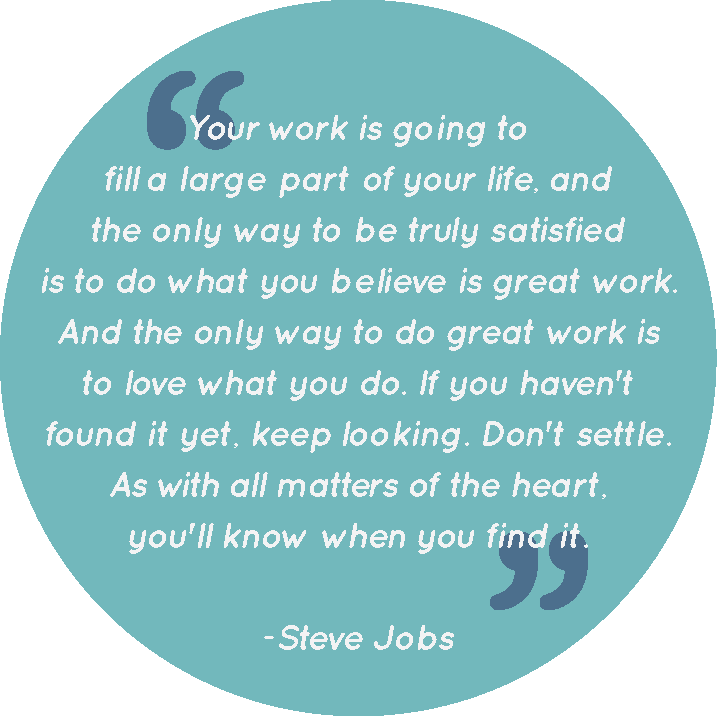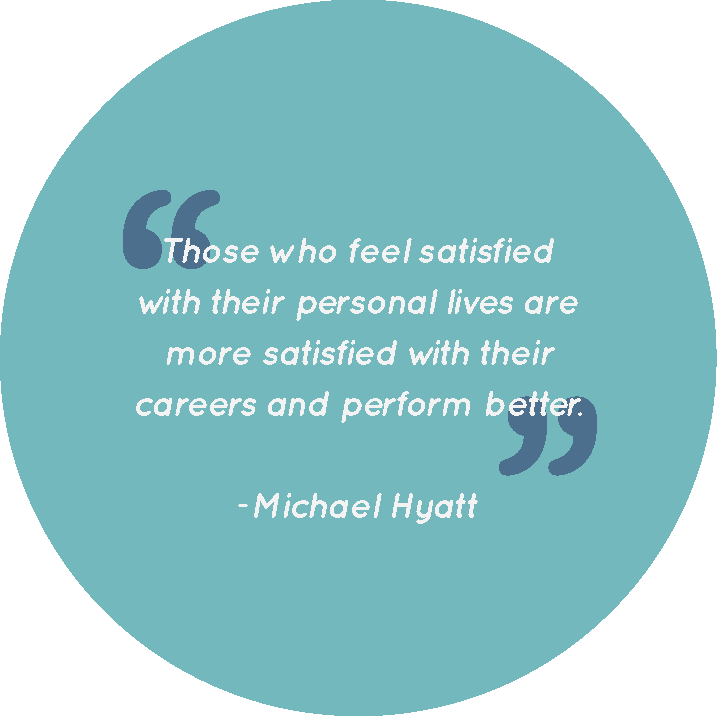By Hayley D’Auria
8 Things I Wish Someone Told Me About Interviewing
Having been a full-time designer for some time now (plus some time doing freelancing and contract work), working in LA and SF, and having conversations with many fellow designers, I now fully grasp what it takes to land a design job. I am now in my second full-time gig. Neither of my experiences with finding a job was perfect. Now I know some of the mistakes I made are more common that I thought.
It’s funny how when life isn’t going your way, you feel you must be the only one struggling with it. But if you step outside of your bubble, you’ll realize that your situation is a lot more common than you think.
Design work is competitive, and CONSTANTLY changing. Nobody really talks about how hard it is to get a job, because, frankly, it can be embarrassing to talk about being unemployed or rejected. I have learned from my mistakes. I think you can too. So, let me set up this story for you.
You’re almost done with school. You’re starry-eyed, excited, and probably not prepared for the reality of landing your first design job. You chose graphic design (or something related) as your major because you’re creative and it’s fun! It’s way more fun than crunching numbers like your friends who majored in finance or biology. So, its time to start the job search.
And then you experience a rude awakening.
If you are anything like me, you are excited to finish school and motivated to get hired for your first job. At school, they taught you about the fun and exciting things you can do with design. Now you’re ready to put your new-found skills to the test!
Then that excitement and motivation slowly wanes as you go through your job search. Countless applications are filed, interviews are had, and then the waiting game starts. Now you are waiting for your hard work to pay off. I went through this, and many other designers have too. There’s always a few that get lucky with an internship that turns into a full-time job or score a job through connection. But for this article, we will forget about those lucky people.
Or maybe you were one of those lucky people. But the job didn’t pan out, and now you’re back at square one, six months later. You don’t have enough experience, so you’re in the same boat as the new grads looking for work.
Receiving a rejection for a job — or worse, not hearing back from the company after an interview — can be soul crushing. When I was at my wit’s end, after I had filled out over 200 applications, I wish someone gave me the advice that I am giving you: brighten your spirits and bring your expectations back down to earth. Here goes:
1. Confidence. is. key.
The interviewing process is very intimidating. I don’t care if you are the most confident person around, but sitting across the table from someone who has more experience than you, and having to show them your work, and trying to convince them that you are worth hiring is intimidating. But the truth is that an interview is like playing the lottery. You can’t win if you don’t play the game. You have to walk in there with the confidence that you deserve the position. And that they are lucky to have you.
I remember my Dad giving me this advice when I was doing my job search. I brushed it off because I felt there was no way someone with zero experience could exude such confidence. But after a couple of interviews with no results, I started to say, “Screw it, I’ll pretend.” And it worked. You know what they say: “Fake it till you make it.”
Because if you don’t believe in yourself, chances are the person interviewing you won’t either.
2. Get your ish together
Nobody is going to hire a designer with a half-baked portfolio or one who has a resume that is made in Word. Employers are hiring you to make good-looking, professional designs. So put your best foot forward.
Resumes, cover letters, portfolios, leave-behinds, and your online presence are important. When all your cohorts are applying for jobs, and graduation is fast approaching, I know it can seem like you don’t have time. But take the time to get all your material together before you even start applying for jobs. Let your portfolio do some of the work for you. It is the best way to show off your style and creativity to potential employers.
Think about sorting through 200 applications. Give the person who is reviewing the resumes something to get excited about so that they will bring you in for an interview. Whether it’s a cleverly worded cover letter, an out-of-the-box resume, a well-designed portfolio, or a robust online presence — find a way to stand out. The more work you do a head of time, the less work you have to do in the face-to-face interview.
And don’t forget about your online visibility. There are SO many resources for making free websites now, so take advantage of them. In addition to a flawless website, make yourself a Behance portfolio. Use LinkedIn or get on Dribbble and become a part of the online design community. (You’re already on Medium, so you’re headed in the right direction.) You will be surprised at the connections you make, and how you will impress your interviewers!
3. Don’t be hasty
An additional six weeks or even a couple of more months spent looking for work is worth it, especially if you find the right job. Don’t feel rushed to take a job just because it is being offered to you. And don’t be afraid to turn one down if it doesn’t feel right. Working your old job as a server, or staying unemployed for a bit longer is not going to make a difference in the long run.
What you don’t want to do is to take a job with a super long commute, bad benefits, or a product that you hate, just because you got the job offer. You never know, you might receive another job offer two weeks later that has a work environment better suited for you. This brings me to my next point.
4. Be your own advocate
Take the time to think about what is important to you at your workplace. Be practical. This might be hard if you’re just coming out of school. But even if you have no work experience you can still think about what you want at your new job. Make a list and rank three to five things that are most important to you. This list might change over the course of your career.
You’ll see what you like and don’t like when you have worked at different companies. Learn what is important to you. Here are some examples, good healthcare, stock options, commute time, type of workstation, and vacation time, to name a few.
Even before you start going to your interviews, make sure you know what you are willing to compromise on. Then you will know what to ask for. If something is a deal breaker for you, then you won’t be swayed by the other things they offer. Cue #5.
Make sure you have a firm grasp of what you are willing to compromise on. What are your deal breakers?
5. Beware of too many perks (sort of)
Many start-ups offer flexible hours, free lunch, open floor plans and more, but it’s easy to lose sight of what is really important to you (that list from #4). I’m not saying you should turn down a job offer because it has too many awesome perks. Just make sure they cover the basics, too.
It is important to remember that you feel valued as an employee. Make sure your work is fulfilling and that you are getting what you need from your job. That’s what makes being at work for 50% of your waking hours worthwhile. The yoga at lunch, free snacks, and ping pong are only icing on the cake. And if the cake tastes bad, then there’s no point in putting icing on it anyway.
6. Place some importance on the product
Emphasis on some. This one is short and sweet. Product isn’t everything, but it can impact your experience. If you find work in an agency setting, this won’t really matter because the work will constantly change. But if you choose to work in-house, choose a company that produces something that you believe in. This can make your work experience richer and more fulfilling.
Likewise, if the company sells or creates something you dislike, it can definitely sour your experience. For example, my interests include makeup, hair, and weddings. Could I be happy at ESPN if the environment was good and my list of requirements was met? Sure! But would I be happier at a beauty company that also fulfills my list? Probably.
Choosing a company with a product you believe in can make your work experience richer.
7. Don’t be afraid to negotiate
When you just want a job, I know it feels like you should take it, even if they pay you less than you want. But it’s worthwhile to try to negotiate.
When I was going through the interview process, I thought companies gave multiple offers at one time to multiple people. Then they hired the person who responded first. Naivety at its finest. I thought, “If they are offering me the job, I better take it before they change their minds.” And now I realize that is not the case. The amount of work that goes into finding and selecting a good candidate for the job is more than you might think.
Managers, directors, and recruiters have to look at many applications. Then they have to narrow them down so that they can bring the candidates in for an interview. Then they have to agree on which candidate they want to hire. So, if you come back asking for more compensation (as long as it’s reasonable), they are probably more than willing to appease you. Or at the very least meet you halfway. This is preferable to going through the entire process again with their second-choice candidate.
Keep in mind that money isn’t the only thing you can ask for. If they can’t offer you more money, then ask them to pay for classes or conferences, your transportation (if you take a train or bus to work), more vacation time, flexible hours, or something else that is important to you.
8. Remember that work is just work
I can not stress enough how important it is to adopt this mindset. Many young professionals are so wrapped up or overwhelmed by their work that it even stresses them when they are outside of work. They are bringing home with them their frustrations from work. It’s usually rooted in their passion for the work, which is a great quality, but to their own demise. I’m not recommending you slack off at work, but you will encounter things that irk you. It is inevitable.
Whether the project you just spent two months perfecting got killed, or you’re receiving negative feedback, or your coworkers are driving you nuts, remember that there is more to life than work. Take a deep breath and walk away. Think about your plans for the evening or the weekend (or think about making plans if you don’t already have plans), and go back to work with a clear head.
This advice also goes for those looking for work. When you are feeling stressed because you’ve submitted 200 applications and have had only six interviews, remember that work is just work. You won’t be unemployed forever. You WILL get a job. It might not be tomorrow, but once you get a job, none of that will matter, and it will feel worthwhile. Also, remember that every working designer has been in your shoes, and they all made it to where they are today because of it.
Remember that there is so much more to life than work.
Thanks for reading my article. I hope it helped those who are doing their job search. :) If you like this, see more on my website, or connect with me on social.
P.S. Thanks to Sean D'Auria for proofing my article and helping me make my thoughts more concise. ❤



